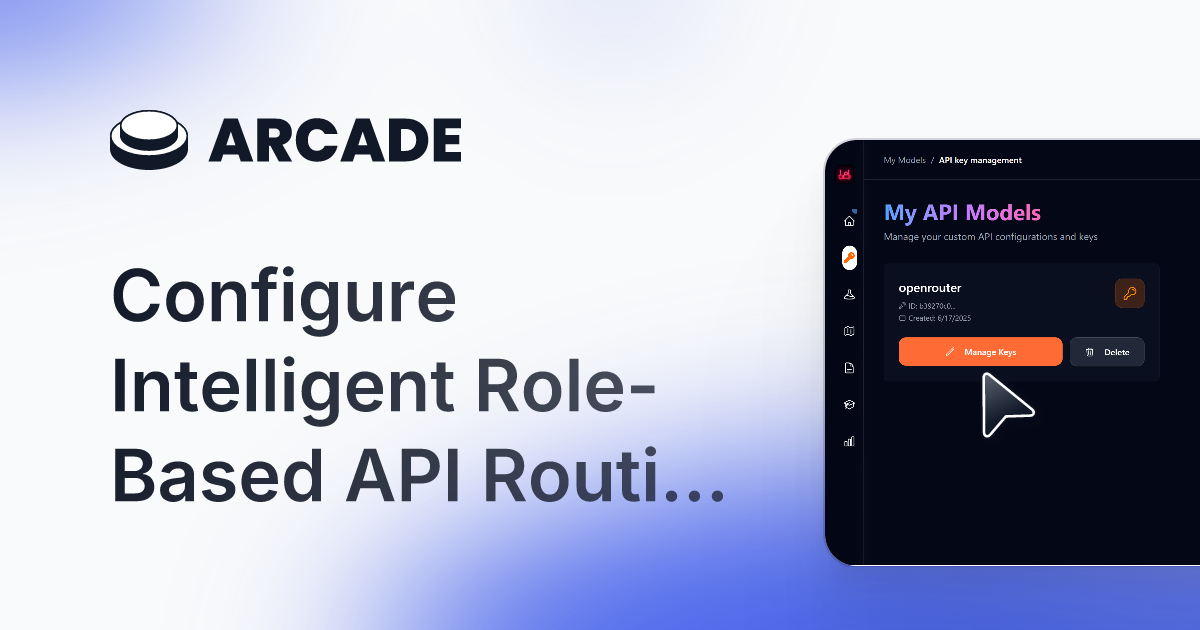
Table of Contents
Overview
Managing multiple Large Language Models (LLMs) across different providers can become unwieldy and expensive. RouKey is an AI router for developers that aggregates over 50 LLM providers (including OpenAI, Anthropic Claude, and Google Gemini) into a single dashboard. By letting you bring your own API keys, assigning each model a specific role, and employing intelligent routing, RouKey routes each request to the optimal model in real time. This BYOK approach ensures zero markup and can reduce your AI platform spend by up to 70%.
Key Features
RouKey offers a comprehensive feature set to streamline multi-LLM workflows:
- LLM Provider Aggregation: Connect 50+ major LLMs through one unified interface, eliminating fragmented integrations.
- Smart Model Routing: Automatically selects the best-performing or most cost-efficient model for each query based on your configured roles.
- BYOK (Bring Your Own Key) Support: Use your existing API keys so you pay only provider charges—no hidden fees.
- Role-Based Configuration: Assign roles (e.g., “creative writer,” “code generator,” “data summarizer”) to models, enabling task-specific routing without code changes.
- Zero Markup Access: Since you supply keys directly, RouKey adds no additional markup.
- Spend Analytics Dashboard: Monitor usage and costs across all providers to identify savings opportunities and optimize routing rules.
How It Works
- Integration: Add RouKey as an API layer in your app, just like any LLM endpoint.
- Key Management: Enter your API keys for each provider into RouKey’s dashboard—no key reselling.
- Role Assignment: Define model roles in the dashboard: for example, assign GPT-4 for complex reasoning, Claude for creative tasks, and Gemini for translation.
- Intelligent Routing: When your application sends a prompt, RouKey’s engine analyzes the task, matches it to the appropriate role, and routes the request to the ideal model in milliseconds—balancing latency, accuracy, and cost.
- Response Delivery: RouKey returns the chosen model’s output to your application, maintaining compatibility with the OpenAI API standard.
Use Cases
RouKey’s flexible design empowers a variety of AI-driven applications:
- Cost Optimization: Automatically direct less demanding prompts to lower-cost models, reducing overall spend by up to 70%.
- Performance Matching: Ensure critical tasks (e.g., compliance checks) use high-accuracy models while routine operations use faster, cheaper options.
- Centralized Key Management: Store and rotate keys from dozens of providers in one secure location with role-based access controls.
- A/B Testing \& Benchmarking: Compare outputs from multiple LLMs on identical prompts without changing code.
- Role-Specific Pipelines: Build complex workflows—such as drafting, editing, and summarization—where each step uses a specialized model.
Pros \& Cons
Advantages
- Extensive Provider Choice: Access 50 + LLMs in one place, from boutique models to leading-edge offerings.
- Significant Cost Savings: BYOK routing can cut AI expenses by up to 70% by matching tasks to the most economical model.
- Avoid Vendor Lock-In: Aggregates multiple providers and uses your keys, ensuring you’re not tied to a single vendor’s pricing or uptime.
Disadvantages
- Key Management Overhead: You must obtain and maintain separate API keys for each provider.
- Initial Role Setup: Defining effective roles and routing rules requires an upfront configuration step.
How Does It Compare?
RouKey’s combination of BYOK, role-based routing, and zero markup distinguishes it from other LLM routers:
- Helicone AI Gateway: A high-performance Rust-based router with advanced caching, telemetry, and enterprise compliance. Helicone emphasizes ultra-low latency and extensive observability, but it bundles its own billing rather than BYOK.
- OpenRouter: A cloud-hosted LLM aggregator offering pay-as-you-go pricing and plug-and-play credits. It’s ideal for rapid prototyping but applies a small markup and lacks self-hosting options.
- LiteLLM: A self-hosted, open-source router providing deep configurability, budget controls, and integration hooks. It demands familiarity with Python and YAML and does not offer a managed service.
- Unify AI: A lightweight platform for simple provider switching with pass-through billing. It’s easy to set up for basic use cases but lacks advanced routing strategies, caching, and observability features.
Final Thoughts
RouKey offers a robust, no-markup solution for developers seeking to optimize both performance and cost across dozens of LLM providers. Its role-based routing engine, combined with BYOK simplicity, makes it uniquely suited for teams scaling AI workflows while maintaining full control over their provider relationships. Although initial key management and role configuration require effort, the long-term savings and operational flexibility make RouKey a compelling choice for any AI-driven application.

